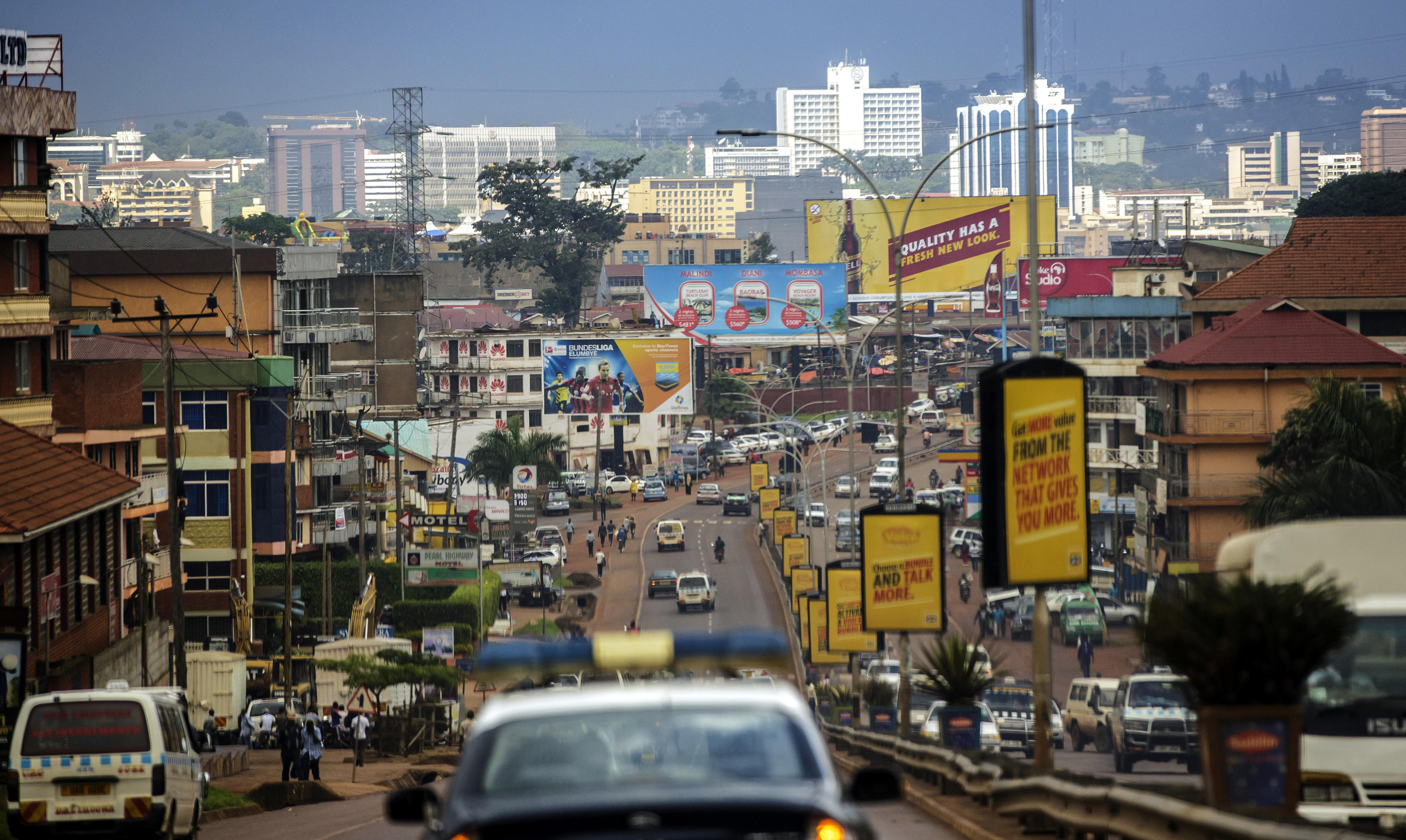View of Kampala, the capital of Uganda
Copyright© SuSanA Secretariat, via flickr, CC BY 2.0
Uganda
Within a region that has been one of the conflict hotspots of Africa and continues to experience armed conflict and large-scale displacement, Uganda is actively working for peace, security and regional cooperation. Over many years, Uganda's economy saw sound development, in spite of considerable challenges such as widespread corruption and a high rate of population growth.
However, in the past few years the government of President Yoweri Museveni, who has been in office since 1986, has increasingly restricted civic space and space for the political opposition. This was also evident during the most recent presidential elections in 2021, which were neither fair nor free and were accompanied by repressive action against the opposition, civil society and media representatives. Precisely because of these developments, efforts to strengthen human rights, civil society and good governance remain a focus of Germany's development cooperation with Uganda.
Human rights under threat
In March and, after some amendments, once more in May 2023, the Ugandan Parliament passed a drastic bill against homosexuality and LGBTIQ+ persons. The President signed the law on 26 May 2023. The law envisages long prison sentences and even the death penalty for homosexual acts.
The law has met with harsh international criticism. Criticism has also arisen within Uganda. Several petitioners challenged the law in Uganda's Constitutional Court. In its decision of 3 April 2024, the Court upheld the anti-homosexuality law, stating that it was constitutional. It only revoked individual parts of the law (see also Political situation).
Generous refugee policy
Uganda is among the biggest hosts of refugees in Africa. Some 1.9 million displaced people (as at end of July 2025), most of them from South Sudan and the Democratic Republic of the Congo, are staying in Uganda. The government pursues a very generous policy on refugees, which is considered to be exemplary across Africa. However, that policy is now reaching its limits, as host communities' capacity to provide shelter and basic services is nearly exhausted. Moreover, the regions hosting refugees are experiencing increasing pressure on natural resources and sources of livelihood such as fertile land, forests, and water.
German development cooperation with Uganda
German development cooperation with Uganda focuses on fostering peace and social cohesion. This includes support for refugees and host communities.
The regional focus of the cooperation programme is on north-western Uganda – a region hosting many refugees from South Sudan and the Democratic Republic of the Congo. As a result of the arrival of such large numbers of people, host communities are faced with severe pressure on their infrastructure and resources, such as water supply and firewood. In this context, the BMZ is engaged in efforts to improve the living conditions of refugees and ensure that natural resources are used sparingly.
In the field of rural development, dealing with climate change is an important part of the BMZ's work. Efforts focus on adapting agriculture to climate change and achieving sustained improvements to the food situation through higher agricultural productivity.
At the government negotiations in 2022, the German government committed 68.8 million euros in new funding for Ugandan-German development cooperation.
Cooperation focuses on the following core areas:
- Peaceful and inclusive societies
- Climate and energy, just transition
- Transformation of agricultural and food systems
SDG trends for Uganda
- On track or maintaining SDG achievement
- Moderately improving
- Stagnating
- Decreasing
- Trend information unavailable


















